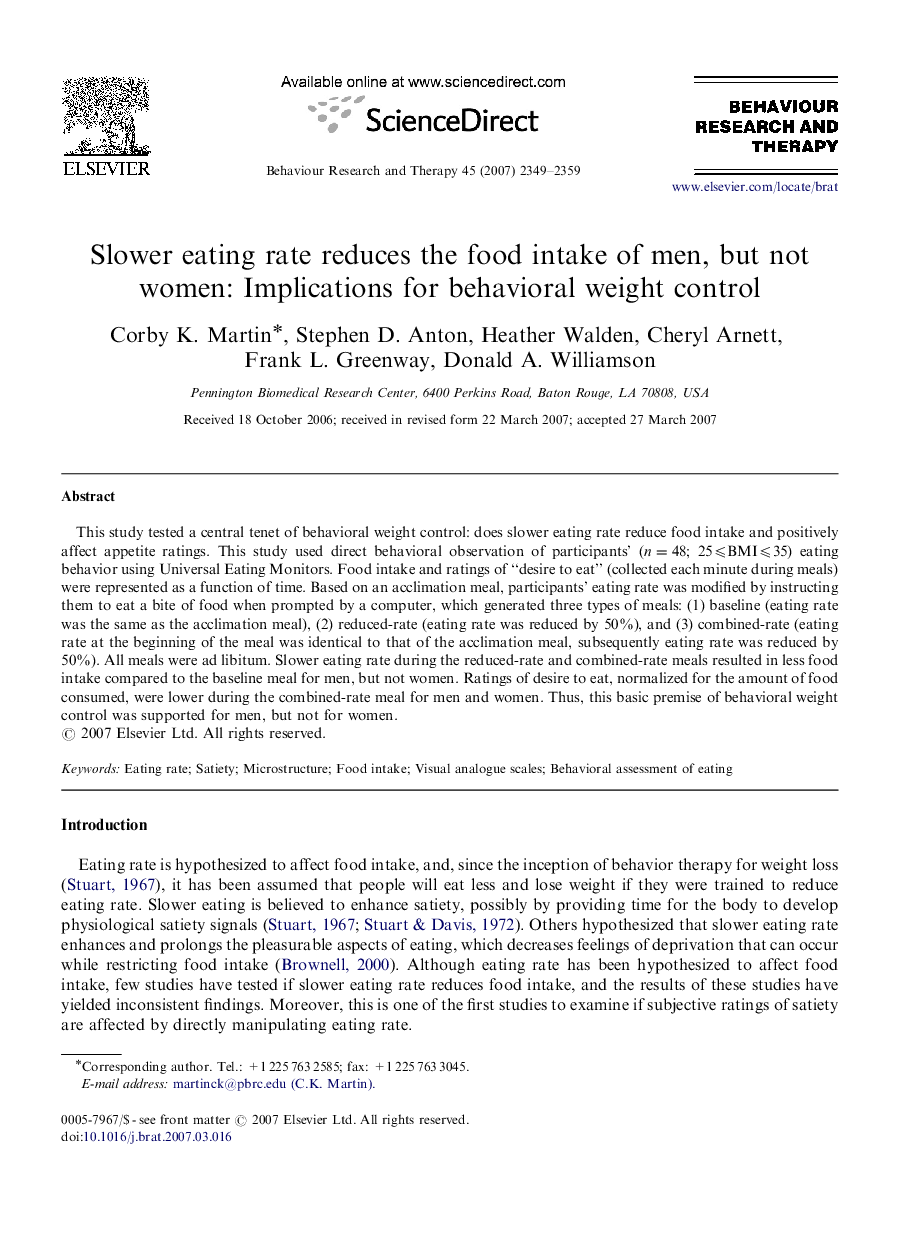| کد مقاله | کد نشریه | سال انتشار | مقاله انگلیسی | نسخه تمام متن |
|---|---|---|---|---|
| 902297 | 916148 | 2007 | 11 صفحه PDF | دانلود رایگان |

This study tested a central tenet of behavioral weight control: does slower eating rate reduce food intake and positively affect appetite ratings. This study used direct behavioral observation of participants’ (n=48; 25⩽BMI⩽35) eating behavior using Universal Eating Monitors. Food intake and ratings of “desire to eat” (collected each minute during meals) were represented as a function of time. Based on an acclimation meal, participants’ eating rate was modified by instructing them to eat a bite of food when prompted by a computer, which generated three types of meals: (1) baseline (eating rate was the same as the acclimation meal), (2) reduced-rate (eating rate was reduced by 50%), and (3) combined-rate (eating rate at the beginning of the meal was identical to that of the acclimation meal, subsequently eating rate was reduced by 50%). All meals were ad libitum. Slower eating rate during the reduced-rate and combined-rate meals resulted in less food intake compared to the baseline meal for men, but not women. Ratings of desire to eat, normalized for the amount of food consumed, were lower during the combined-rate meal for men and women. Thus, this basic premise of behavioral weight control was supported for men, but not for women.
Journal: Behaviour Research and Therapy - Volume 45, Issue 10, October 2007, Pages 2349–2359